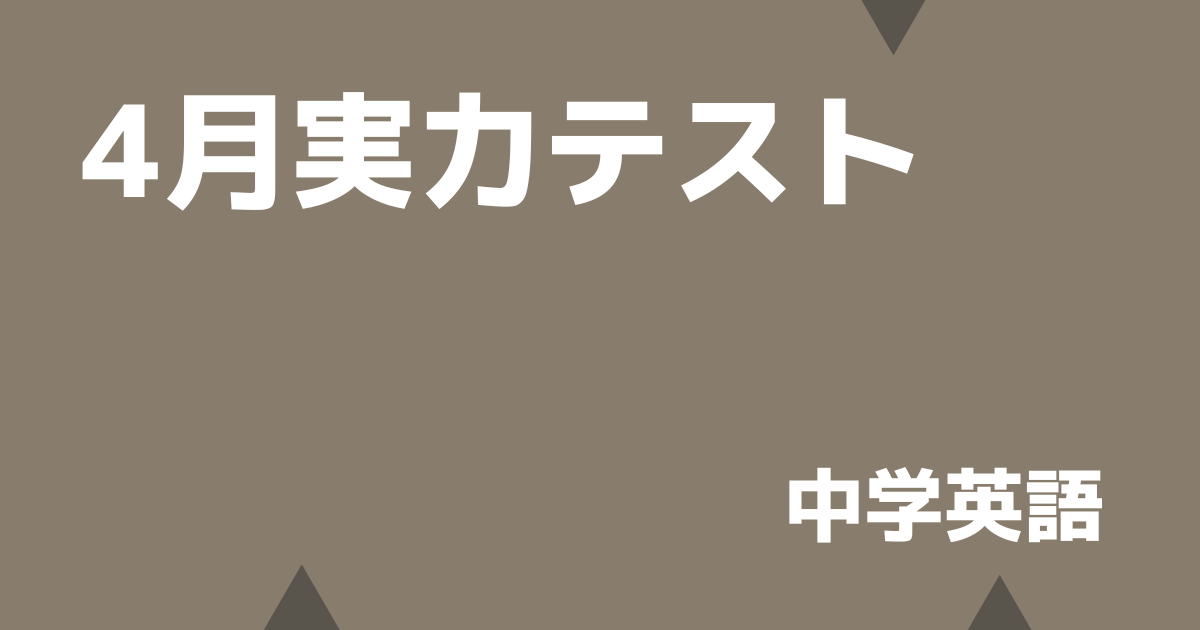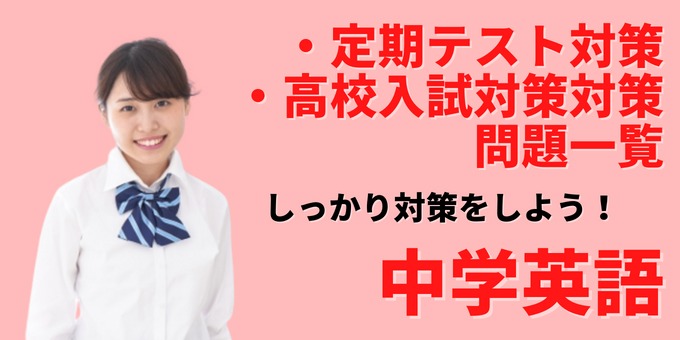【中3英語】春休み明け4月実力テスト対策予想問題です。中学1年生から中学3年生までで履修した内容で問題は構成されています。
4月実力テスト対策予想問題(中3英語)
【問1】次の各組の文がほぼ同じ意味になるように、( )に適する語を書きなさい。
(1)It snowed a lot in Tokyo last year.
We had ( )( )in Tokyo last year.
(2)I have no pencils to lend you.
I ( )have( ) pencils to lend you.
(3)This watch is old.
This is( )( )watch.
(4)Taro is a good soccer player
Taro can( )soccer( ).
(5)There is much water in this river.
There is a( )( )watch in this river.
【問2】次の日本文に合う英文になるように、( )内の語を並べかえて全文を書きなさい。
(1) 彼はときどき何かおもしろいことを言います。(something/he/sometimes/says/interesting/.)
(2) びんの中にはほとんどミルクがありませんでした。(little/was/the/in/bottle/there/milk/.)
(3) 息子はいつも小さな子どもに親切です。(Keiko/always/to/children/is/small/kind/.)
(4) その町は清けつで美しくなりました。(beautiful/and/ became/the/clean/town/.)
(5) 机の上には写真が何枚かあります。(are/on/desk/pictures/the/there/some/.)
(6) 私にはすべき宿題はあまりありませんでした。(do/to/homework/didn’t/much/I/have/.)
【問3】次の各組の文がほぼ同じ意味になるように、( )に適する語を書きなさい。
(1)Hiroshi is not as old as Kenji.
Hiroshi is( )( )Kenji.
(2)Soccer is more popular than baseball among young people.
Young people like soccer( )( )baseball.
(3)This tree is taller than that one.
That tree is( )( )this one.
(4)This question is more difficult than that one.
This question is not( )( )as that one.
(5)English is much easier than French.
French is much( )( )than English.
【問4】次の日本文に合う英文になるように、( )内の語を並べかえて全文を書きなさい。
(1) この本はあの本と同じくらいおもしろい。(as/as/interesting / this / that / book / one / is /.)
(2) あなたはどの花がいちばん好きですか。(flower / like / the / you / best / do/ which /?)
(3) 私は私の兄より早くそこに着きました。(there/earlier/I/got/than/brother/my/.)
(4) 今日は昨日より少し寒い。(than/little/yesterday/today/a/is/colder/it/.)
(5) 私は正男と同じくらいたくさん食べました。(ate/Masao/I/as/as/much/.)
(6) 今日は1年でいちばん大切な日です。(important / the / the / of / today / day / most / is / year /.)
4月実力テスト対策予想問題(中3英語)の解答
【問1】
(1) much snow
(2) don’t, any
(3) an old
(4) play, well
(5) lot of
【問2】
(1) He sometimes says something interesting.
(2) There was little milk in the bottle.
(3) Keiko is always kind to small children.
(4) The town became clean and beautiful.
(5) There are some pictures on the desk.
(6) I didn’t have much homework to do.
【問3】
(1) younger than
(2) better than
(3) shorter than
(4) as easy
(5) more difficult
【問4】
(1) This book is as interesting as that one.
(2) Which flower do you like the best?
(3) I got there earlier than my brother.
(4) It is a little colder today than yesterday.
(5) I ate as much as Masao.
(6) Today is the most important day of the year.


コメント